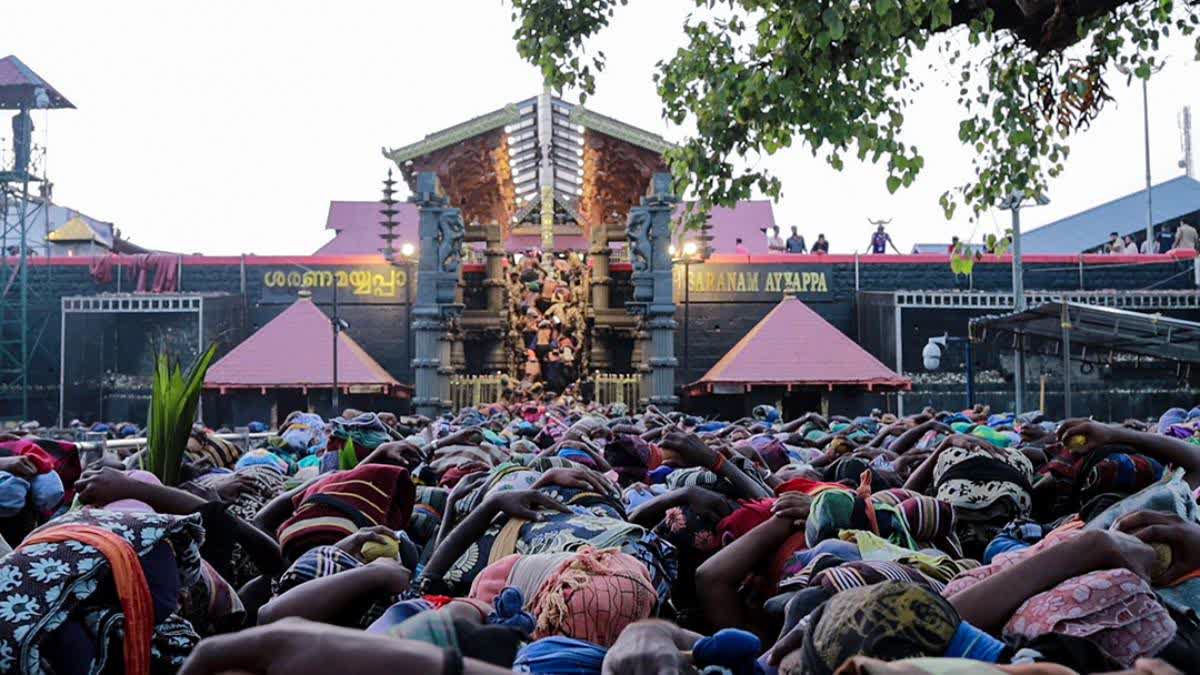Thiruvananthapuram: With a few days left for Sabarimala pilgrimage season, road accidents involving pilgrims have claimed several lives. To address this growing concern, the Travancore Devaswom Board, which administers the Sabarimala temple, has launched a new accident insurance scheme aimed at providing compensation to the families of the victims.
The scheme, which came into effect a few days ago, offers Rs 5 lakh as compensation for pilgrims who lost their lives in accidents within the districts of Pathanamthitta, Kollam, Alappuzha and Idukki. Notably, this coverage is being provided free of cost.
This scheme covers all pilgrims who either book their visit through the virtual queue system or through spot bookings. The Board has partnered with the United India Insurance Company to implement this initiative. Discussions are also underway to expand the coverage to additional districts, said Board president P S Prashanth.
In a separate move, the Board has introduced a second insurance scheme for workers involved in the upkeep of the pilgrimage site. This includes the 'Vishudhi' workers responsible for cleaning Sabarimala and Dolly workers who carry devotees from Pampa to Sannidhanam (sanctum sanctorum) and back. In collaboration with India Postal Payments Bank, the scheme provides compensation of Rs 10 lakh in case of accidental death or total disability and Rs 5 lakh for partial disability. Workers opting for the scheme will have to shell out a premium of Rs 499.
Discussions are also being held to provide additional benefits, including free medical insurance and educational support for the children of the insured.
For the pilgrimage, spot bookings will be available to 5,000 devotees per day until January 13. However, on the day of Makara Vilakku (January 14), only 1,000 pilgrims will be allowed entry. The Board has clarified that only those with virtual queue bookings will be permitted to enter the temple on these days.
The initiative comes as part of ongoing efforts to ensure the safety and well-being of both pilgrims and workers during the pilgrimage season.
Also Read:



